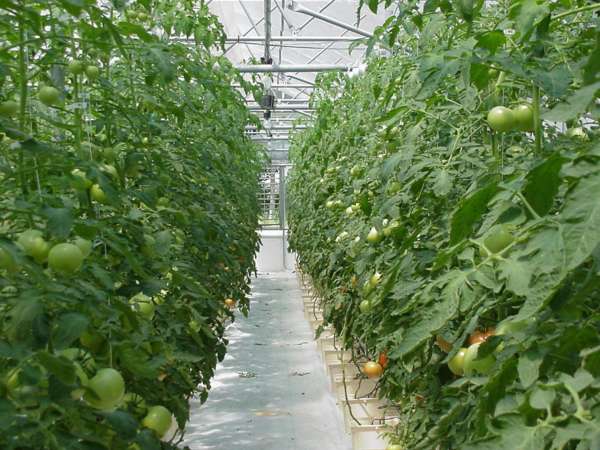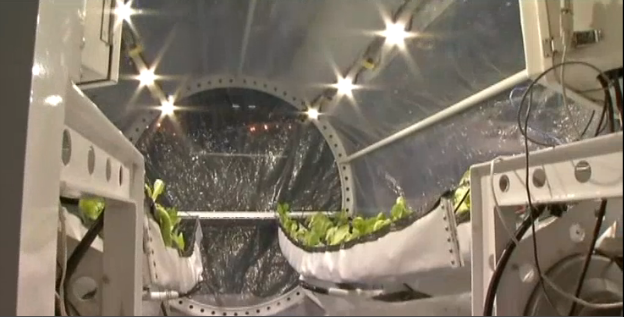Farming has always been the cornerstone of the development of our North American society. But with the advancement in technology and internet based industries, a younger generation grew up and away from agriculture practices. Food production will still always be a necessity and so we must find ways to reinvent farming in order to attract younger workers to this evolving industry. Hydroponic agriculture programs and research at universities across North America are trying to reinvigorate our society’s youth and get them interested in food production.
Experts realize the importance of hydroponic technology in ensuring the future of food security. This is why in order to involve the millennial age bracket, universities are now offered grants to provide hydroponic agriculture programs for interested students. Here are three universities with hydroponic agriculture programs.

Hydroponic tomato plants grown at the University of Ohio Hydroponic Crop Production facility. Image via OARDC.
Ohio State University, Hydroponic Crop Program
This hydroponic agriculture program began in 1999 thanks to grants from the USDA and additional funding from the Ohio State University Extension. The program is run in cooperation with the Ohio State University Agricultural Research and Development Center (OARDC) and the Agricultural Business Enhancement Center (ABE) in an effort to develop hydroponic produce businesses in Ohio. Participants of the program are given horticulture knowledge and greenhouse design support, and well as business planning and marketing skills leading to a well-rounded education. Learning is developed through direct training by experts, seminars, and facility tours. The program’s website offers further support through technical information such as growth stages, essential nutrients, economics and budgeting, as well as both an interactive tomato and lettuce growth model.
Cornell University, Controlled Environment Agriculture
Cornell University has been a leader in the practice of Controlled Environment Agriculture since 1999 when the school established a commercial prototype to produce lettuce at a facility in Ithaca, New York. This facility can grow 1,245 heads of lettuce per day. Research performed at Cornell’s CEA is in partnership with the controlled Biomass Production Chamber experiments performed by NASA in attempts to grow plants in space. Though the commercial facility is no longer in operation, Cornell continues to experiment in small greenhouses and growth chambers to uncover selected aspects of hydroponically-produced vegetables such as the development of computer systems which predict plant harm, the improvement of the crops’ nutritional value, and environmentally friendly biological and pest control methods. They continue to partner with NASA to investigate plant life viability on space flights.

Controlled Environment Agriculture Center’s Lunar Greenhouse at the 2013 BIO International Convention in Chicago. Image via University of Arizona, CEAC.
University of Arizona, Controlled Environment Agriculture Center
The Controlled Environment Agriculture Center (CEAC) at the University of Arizona is an education and research facility part of the Department of Agricultural & Biosystems Engineering as well as the School of Plant Sciences. The CEAC is used to produce plants indoors which maximizes efficiency but with lowered environmental impact. At the CEAC, new innovative technologies are also explored such as sensors and monitoring as well as plant physiology. The research and testing performed at the CEAC had led to advancements in water and energy conservation technologies in hydroponic growing as the Center has made it their mission to efficiently optimize resource consumption. Students of this program gain hands-on experience which allows them to test different systems while being responsible for the maintenance of the crops. They then get to be a part of the final stage – selling the produce on campus and at local farmers’ markets.